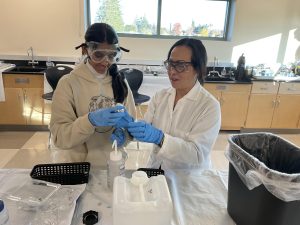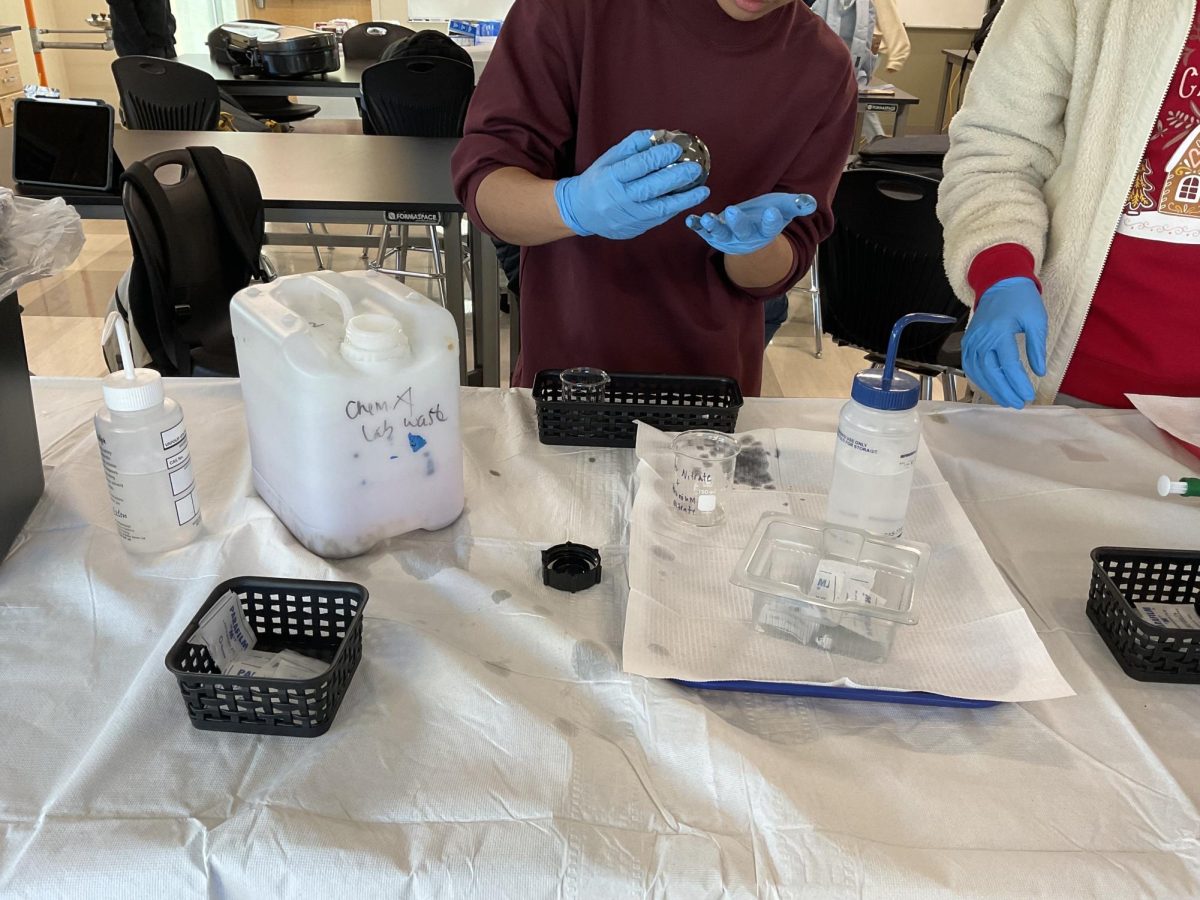Mitty’s Advanced Science Research (ASR) program is stepping in to help anyone interested in furthering their lab and research experience. Initially focusing on mentorship for extracurricular projects, this program recently began hosting hands-on science workshops available to all students.
Under the leadership of lab coordinator Mrs. Thuy-Anh Nguyen, ASR started in 2015 to advise students participating in Synopsys–an advanced science fair for high school students in Santa Clara County. Four years later, the program expanded to also include a summer camp designed to give incoming freshmen a taste of Mitty science classes. Starting in the 2024 fall semester, it began to accommodate a broader range of students interested in research through lab workshops.
Mrs. Nguyen said, “The whole issue of access to science was important to me, and I’ve always known that it’s hard to do a science fair. So I said, okay, how else can I give students [research] experience?” In order to make science research opportunities more accessible, these workshops run weekly and are less formal than a full-blown science fair project. They are open to all on a first come, first served basis, and perfect attendance is not mandatory. Anyone who is interested merely needs to enroll in the organization’s Canvas class and sign up for individual labs as they become available.

Each meeting is meant to grow students’ lab experience via hands-on activities, exploring subjects like biology and chemistry, while getting used to the scientific process. The program is far from a conventional class in the sense that there are few lectures; participants are given lab procedures and foundational knowledge, then set on self-guided exercises with the collaboration of other participants. For example, students recently conducted a lab that tested if they had the genes necessary to taste the bitter compound PTC. Additionally, the program now offers mentoring to students participating in out-of-school opportunities other than Synopsys, such as Genes in Space—a competition in which students design a DNA-related experiment relevant to space exploration using a limited toolkit. Overall, each of the activities provided by the program contribute to its overarching goal of making science more accessible to all students.
Over the past years, ASR has made great progress in creating opportunities for extracurricular science learning and accessibility. Today, in addition to preparing for science fairs, students also have the option to participate in hands-on workshops that—while not offering prizes or class credits—provide experience and an appreciation of the processes that make them possible. After all, according to Mrs. Nguyen, “In academics… we tend to associate success with a grade or a prize or an award or something. And yeah, all of that is really great. But in my personal philosophy, the prize is in the process.”


